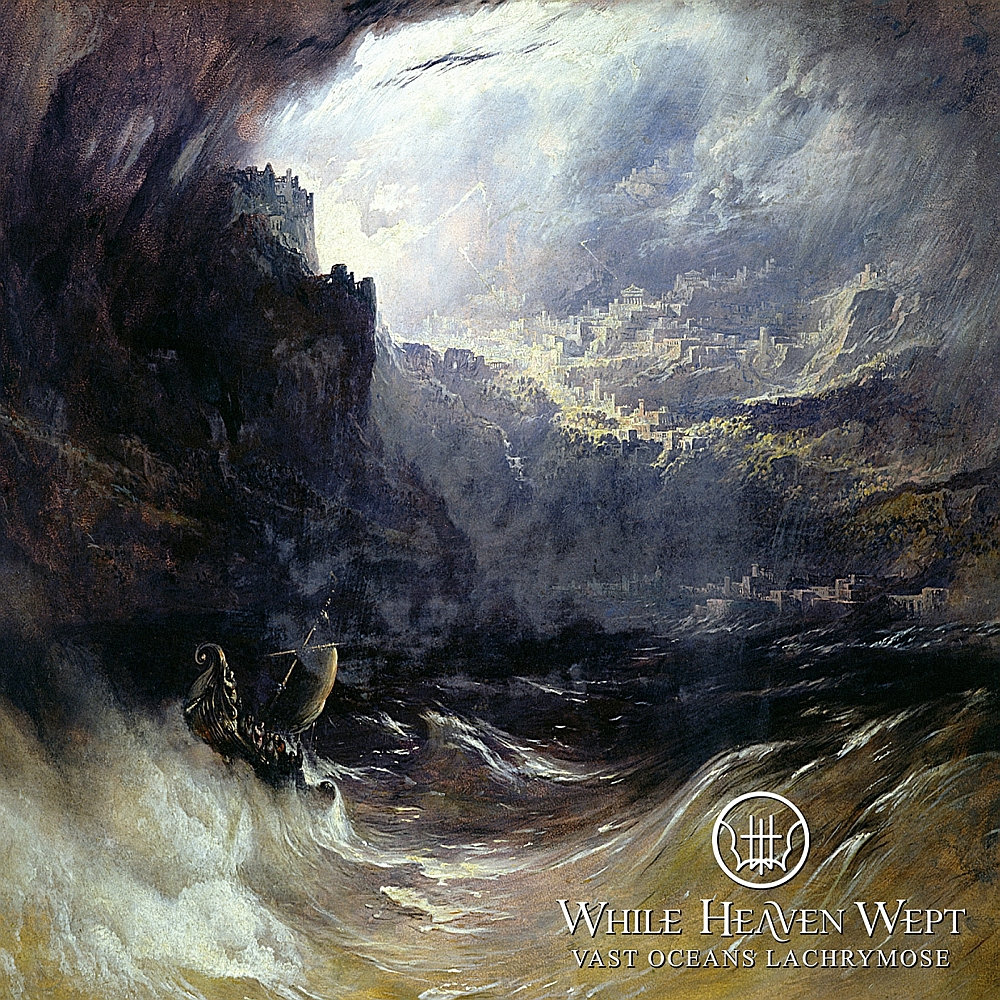As ragged as rain and as black as thunder

Issue 12 · How heavy the hand that holds hope
Welcome
Volume II & Beyond
Welcome back to The Prolix Post, the webzine on a painfully slow ascent to worldwide success. Beginning with the previous rhyme and reason issue, Volume II promises to be the same highly experimental writing you know and tolerate, run slightly less frequently and equally unprofitably. So what’s new?
As mentioned in the previous issue, there is now a website where you can read this issue as well as the entire archive. I spent what could easily be considered ‘far too long’ ensuring that it would look good on phones, tablets and computers. As always, feedback and criticism is most welcome.
There will be more interesting information design and data visualisation, particularly drawing on the work of designer Nicholas Felton.
In keeping with my ethos of embarrassing transparency and of building things that absolutely no-one has requested, I hope to eventually have a statistics section on the website. Since that is unlikely to occur any time soon, let me share the following:
Metrics for Errant Labs, as of the 24th of November, 2016:
| Visitors Fifty | Total Pageviews 1099 | ||
| Pages per Session 5.18 | Avg Time per Session ~5 Mins | ||
| Users By Country 39 1 3 7 | |||
- Zdravstvuj, to the tiny but statistically significant number of Russian users who are inadvertently visiting the site via spam links. I appreciate your custom, however misplaced it may be.
Speaking of hope, I sincerely hope that The Prolix Post – part letter, part magazine and part cause for concern, continues to be the strangest thing in your inbox. Tell your friends about it, tell your enemies about it, and tell John Oliver that I can start immediately and my rates are competitive.
Hot Stats!
Twelve Bar Blues
Metrics for Issue #11, as of the 24th of November, 2016.
| Readership 81 | Preacher Writing Offers zero | |
| Opens 89 50 | Unique Clicks 15 | |
Somewhat Obscure Song of the Week
The Young Person’s Guide to Epic Doom Metal
Or, how I persuade the young and young-at-heart to listen to Vessel by While Heaven Wept
So you have decided to try Epic Doom Metal. Congratulations. Know that this is an important step on your path to a broader appreciation of music in its myriad forms. Your open mind and adventurous spirit will be assets in time to come. As a subgenre of a subgenre of an underground genre, it is understandable if you have not yet encountered Epic Doom Metal. Were we not delving into it right now, it seems entirely possible you never would. And what a shame that would be indeed.
Perhaps we should begin at the beginning, in the moody eyes of a young man named Ozzy Osbourne. These are the early 1970s, a time when young Osbourne could not yet imagine the mild success he would one day achieve in reality television. At this stage, our Osbourne, alongside guitarist Tony Iommi, played in a band named Black Sabbath. In its previous iterations, Black Sabbath had been firmly based in blues, but in the early 1970s, Iommi’s guitar playing grew heavier and the lyrics that Osbourne sang became more sombre and pessimistic. In the decade that followed, this new style of music would come to be known as Doom Metal.
Alas, I feel you slipping away, dear reader. Perhaps you share no love for slower harmonic tempos; perhaps you care not for the thicker guitar riffs, nor for the lyrical themes of despair and despondence. Fear not, dear reader, for what began with Osbourne, Iommi and Black Sabbath, took its own form. It travelled the lands, shaped by the cultures of those who played it. In some corners of the world, Doom Metal took on harsher forms, and bitter vocals bristled with guttural rasp. But in other lands, the clean vocals characteristic of the early days of Doom, were maintained. And one of these fledgling forms took shape as Epic Doom.
 Vast Oceans Lachrymose
Vast Oceans Lachrymose
Ah, I see you have noticed the album art for Vast Oceans Lachrymose (2009) by While Heaven Wept, from Virginia, USA. The artwork is Christ Stilleth the Tempest (oil on paper and mounted on card), completed in 1852, towards the end of the life of English Romantic artist John Martin. A single vessel tossed by the violent hand of the ocean while lightning illuminates the hopeful visage of a city in the distance. Were Vast Oceans Lachrymose to have no track titles at all, Martin’s artwork alone would suffice as a visual summary of the album.
But we were speaking of Epic Doom, were we not? Epic Doom introduced classical characteristics to the traditional Doom model. It brought operatic and choral vocals, grander lyrics often drawn from mythology, and more complex orchestration. In their take on the genre, While Heaven Wept infuses the dense sound and cavernous drums of Doom, with other more progressive and melodic influences. Their work is an exercise in light and shade – balancing hefty riffs with delicate passages and melancholic lyrics with hopeful verse.
Vast Oceans Lachrymose is not so much a collection of individual pieces of music, as it is a single work that has been divided purely for listener convenience. To listen to the whole is to travel through the tumult of the ocean and to arrive at the shore, where the wash of the waves is audible in the closing strains of an instrumental epilogue. A single epic landscape: from the harrowing wake to the light that breaks yonder.
But what are mere words when you have Vessel by While Heaven Wept?
If you want to support the band, their music is available on Bandcamp.
Doom will never be popular, never be trendy, and will never be profitable for 99% of the bands … the label is indeed quite fitting.
While Heaven Wept
Word of the Week
Adoxography
/ a-doks-og-ruh-fee /
noun
- fine writing in praise of trivial or base subjects
On a completely unrelated note …
Movie Review
Arrival
A thoughtful new science fiction film directed by Denis Villeneuve
Since its early days in cheap pulp paperback, good science fiction has always sought to use fantastic worlds to explore the nature of humanity. This does not always translate onto screen, where the broad appeal of spectacle and set piece seems to trump all else. But every now and then, a film like Denis Villeneuve’s Arrival appears, as ambitious as it is thought-provoking, and reminds us of science fiction's potential.
Based on the Nebula award winning short story, ‘Story of your life’ by Ted Chiang, Arrival is about Earth’s first contact with aliens, who arrive in a dozen black, monolithic spacecraft dispersed around the planet. More specifically, Arrival is about Dr. Louise Banks (Amy Adams), a linguist at one of the landing locations, working alongside expert physicist, Ian Donnelly (Jeremy Renner), and under military supervision. Their task is to establish a means of communicating with the newly arrived visitors, in order to determine their purpose and intent. To reveal more would be to deprive you of the experience, because Villeneuve’s film delights in setting and subverting expectations. Unlike many modern science fiction films, which sustain themselves through action, spectacle and banter, Arrival is about the joy of discovery. Each inference, each hypothesis and each discovery made by Louise and her colleagues, is a piece of the puzzle being assembled before the audience.
Naturally the international community is also struggling with the presence of twelve potential extraterrestrial threats and the tension for the audience parallels the escalating geopolitical tension in the film. And underneath the threat of global conflict and the struggle to communicate with another species, is the relationship between Louise and her daughter. Chronicled in an introductory sequence and in remembrances interspersed throughout the film, this relationship underpins the entire narrative. Villeneuve’s Arrival succeeds where even the visually stunning Interstellar by Christopher Nolan fails, because the personal narrative of Louise Banks and her daughter is not merely a means of generating empathy or motivation within a larger story – it very much is the story.
At its heart Arrival is an exploration of the nature of communication and perception. It is a film that manages to paint both a broad landscape of humanity, and a heartbreakingly intimate portrait of a single human, with an understated though assured performance by Amy Adams. Despite its clear ambition and a healthy respect for its audience, there are moments when Arrival missteps and loses momentum. This is particularly evident in the film’s extended concluding sequences, which, having provided all the necessary puzzle pieces, may have been better served by relegating the final few revelations to its audience. Allowing them the opportunity to discuss, to wonder and to question. In staying slightly too long, and wrapping things too neatly, Arrival falters at the finish line.
Then again, to err, is tragically and gloriously human.
Arrival is in cinemas right now. Seriously, go see it.
News & Events
Uneasy lies the head
Of the 2016 Election
Stop me if you’ve heard this before, but an interesting Presidential election has just taken place. And despite there being a number of candidates on the ballot, this race was only ever really about two: she, the ivy league educated head of a liberal party, and he, a reaction to a tremendously corrupt system.
He wins.
The Republic of Moldova elects its first president in 20 years. Perhaps some background would be helpful at this point.
| Location
| Area 33,846 km2 |
| Population ~3.5 million | |
| Capital Chișinău | Eurovision Sixth |
| Government Parliamentary Republic | |
| Flag
| Language Romanian |
| Gained Independence 1991 | |
| Unfortunate Distinction Poorest European Nation | |
Moldova has existed in various forms over the centuries: as a vassal to the Ottoman Empire in medieval times, as a briefly independent Moldovian Democratic Republic and as part of Romania. In 1940, after it was annexed by the Soviet Union, it became part of the Moldovian Soviet Socialist Republic, and it remained so until a declaration of independence in 1991, when it became known as the Republic of Moldova. But since 1996, Moldova’s president has been chosen by its parliament rather than by its people. In March this year the Constitutional Court declared that the constitutional revision which lead to 20 years without direct elections, had in fact been unconstitutional. Moldova went back to the polls in October, failed to secure a majority, and then went back to the polls again on the 13th of November to elect Igor Dodon of the Party of Socialists of the Republic of Moldova (PSRM).
This election is significant not only because the Moldovan people have been denied their choice for two decades, but because Moldova has been embroiled in crisis for a number of years. Exactly two years ago, in November 2014, in a scheme based on fraudulent loans and overseas transfers, a massive $1 billion (an eighth of Moldova's gross domestic product) was wiped from three major Moldovan banks. All three banks were rendered insolvent and were taken over by the National Bank of Moldova, which was forced to inject new capital. Because the National Bank of Moldova did not possess the required capital, it created it, eventually causing inflation to double and resulting in a significant hike in interest rates (The Economist). And the plot thickens, because a significant political coverup managed to suppress information about the theft till April 2015. In response to the banking scandal, much of the foreign financial support for the Moldovan government was suspended till the country dealt with its financial mismanagement and political corruption. And because the Moldovan government depends on such aid to assist with its deficit, it was forced to heavily curtail its expenditure and even freeze some basic services.
All this in the poorest country in Europe.
Since 2009, Moldova has been run by a pro-European-Union alliance between the Liberal Democratic Party, the Liberal Party and the Democratic Party (literally all three combinations of those words). The alliance’s first leader, former Prime Minister Vladimir Filat was jailed for his involvement in the banking scandal. In January 2016, when Pavel Filip, the current Prime Minister of Moldova, assumed office, he became the third Prime Minister in the course of a single year, his predecessors having also been toppled by the scandal. Needless to say, Moldova's faith in its current leadership has been shaken. On the 13th of November 2016, the country elected Igor Dodon, a pro-Russian candidate who campaigned fiercely against the “corrupt oligarchic system” and blamed Moldova's corruption on its pro-European parties. Dodon secured his victory with 52.2% of the vote against 47.8% for Maia Sandu of the Action and Solidarity party. Sandu, the former Minister for Education, had campaigned with a strong pro-European and anti-corruption focus, and is considered one of the few 'clean' Moldovan politicians (BBC), but the final voter turnout of 53.3% had not been in her favour (NYT)
Dodon has campaigned on a promise to move away from the European Union (EU) and toward the Eurasian Economic Union led by Russia. But Moldova has relied on financial support from the EU in the past, and its people are dependent on agreements made with the EU to travel without visas through much of Europe. He will have to contend with a country dealing with the mass emigration of its workforce, a debt ridden pro-European government reliant on aid from foreign countries and the International Monetary Fund. He will have to deal with a Russia in recession. And he will have to work within the constitutional limitations of his office, or change these, as he has suggested in the past. Whether Moldova's new President will be able to affect change, and whether that change will be for his country's betterment remains to be seen. For now and for the foreseeable future, one thing is certain: “Uneasy lies the head that wears a crown.”
We can hold a referendum to dissolve parliament or increase presidential powers. It will depend on how the government comes to terms with an elected president.
President Elect of the Republic of Moldova
Outro
In the next Issue
- The Prolix Post gets closer to meeting its self-determined schedule.
- The Prolix Post inches closer to triple-digit readership and the type of runaway success we all envisaged.
- Major companies continue to have problems with their outgoing email servers, delaying the inevitable sponsorship contracts for The Prolix Post.
- I live in hope.
- Life goes on.
You're welcome,
Nikhil
Postponed Postmaster General

Nikhil Mathew is a Sydney-based writer and the creator of the Prolix zine. He first published this on 26 Nov 2016.

